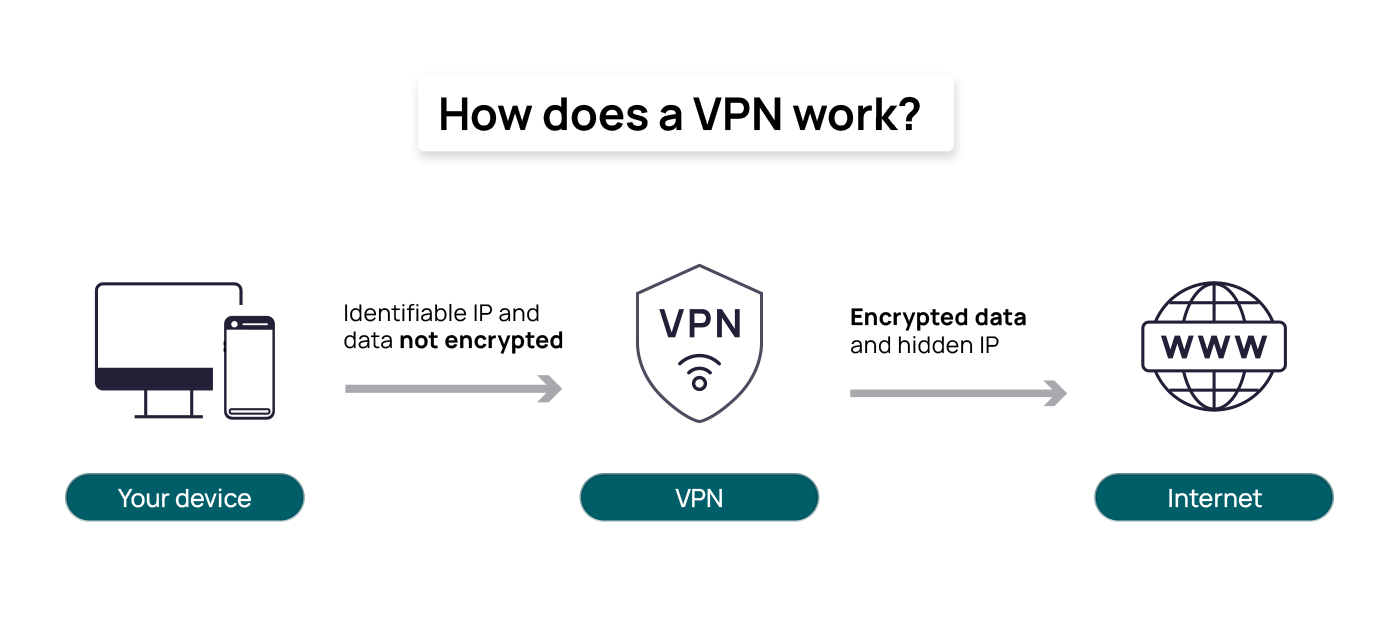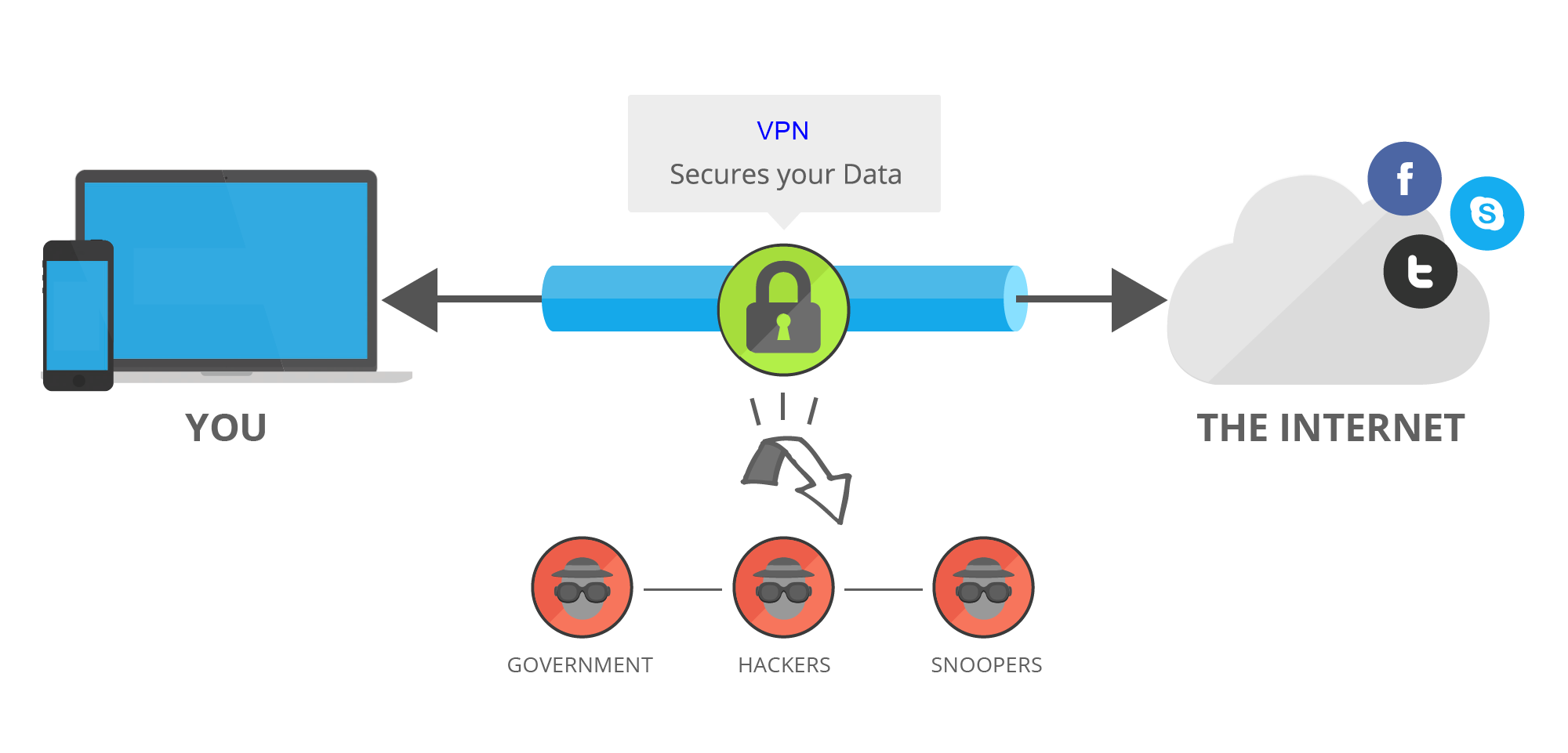A VPN stands for Virtual Private Network. It helps keep your online activities safe. Many people use it for various reasons. Let’s break it down to understand it better.
How Does a VPN Work?
A VPN creates a secure connection. It connects your device to a remote server. This server acts like a bridge. It helps you connect to the internet safely.
Here’s how it works:
- Your device connects to the VPN server.
- Your online activities go through this server.
- The server sends your requests to the internet.
- The internet sends the information back to the server.
- The server sends the information back to you.


Why Use a VPN?
There are many reasons to use a VPN. Here are some common reasons:
- Privacy: It hides your IP address.
- Security: It encrypts your data.
- Access: It allows you to access blocked content.
- Public Wi-Fi Safety: It protects you on public networks.
1. Privacy
Your IP address shows your location. This can make you vulnerable. A VPN hides your IP address. This way, you stay private online.
2. Security
VPNs encrypt your data. This means no one can read it. This is important when using public Wi-Fi. Hackers can steal your information. A VPN helps protect you from this risk.
3. Access
Some websites are not available in every country. A VPN lets you change your location. You can access content that is blocked in your area. This is useful for streaming services.
4. Public Wi-fi Safety
Many people use public Wi-Fi. This can be risky. Without a VPN, your data is at risk. A VPN keeps your information safe on public networks.
Choosing the Right VPN
Choosing a VPN can be hard. Here are some factors to consider:
- Speed: A good VPN should be fast.
- Security Features: Look for strong encryption.
- Server Locations: More servers mean more choices.
- Price: Consider your budget.
1. Speed
Some VPNs slow down your internet. This can be annoying. Look for a VPN with good speed. Check reviews to find the best options.
2. Security Features
Security is very important. Look for VPNs with strong encryption. This keeps your data safe. Features like a kill switch are also helpful.
3. Server Locations
More server locations give you options. You can connect to different countries. This helps you access more content.
4. Price
Some VPNs are free. Others require a monthly fee. Free VPNs can have limits. They may not be as secure. Decide what fits your needs and budget.
How to Set Up a VPN
Setting up a VPN is usually simple. Here are the steps:
- Choose a VPN service.
- Sign up for an account.
- Download the VPN app on your device.
- Open the app and log in.
- Select a server to connect.
- Enjoy safe browsing!
Common VPN Myths
Many myths about VPNs exist. Let’s clear some of them:
- Myth 1: VPNs are only for tech experts.
- Myth 2: All VPNs are the same.
- Myth 3: VPNs make your internet very slow.
- Myth 4: VPNs are illegal.
Myth 1: Vpns Are Only For Tech Experts
This is not true. Anyone can use a VPN. Most services are user-friendly. You do not need to be a tech expert.
Myth 2: All Vpns Are The Same
This is false. Different VPNs have different features. Some are faster, while others are more secure. Always research before choosing.
Myth 3: Vpns Make Your Internet Very Slow
Some VPNs can slow down your speed. However, many do not. Choose a good VPN for better speed.
Myth 4: Vpns Are Illegal
In many countries, VPNs are legal. However, some places restrict them. Always check your local laws before using a VPN.
Frequently Asked Questions
What Is A Vpn Used For?
A VPN, or Virtual Private Network, helps protect your online privacy. It hides your IP address and encrypts your internet connection.
Why Do I Need A Vpn?
You need a VPN to secure your data online. It keeps your information safe from hackers and spies.
Can A Vpn Improve Internet Speed?
Sometimes, yes. A VPN can help bypass network congestion, which may improve your speed in certain situations.
Is Using A Vpn Legal?
Using a VPN is legal in many countries. Check local laws to be sure.
Conclusion
A VPN is a useful tool. It helps keep your online activities private and secure. It can also help you access blocked content. However, not all VPNs are the same. Take your time to choose the right one. Always remember to stay safe online.
